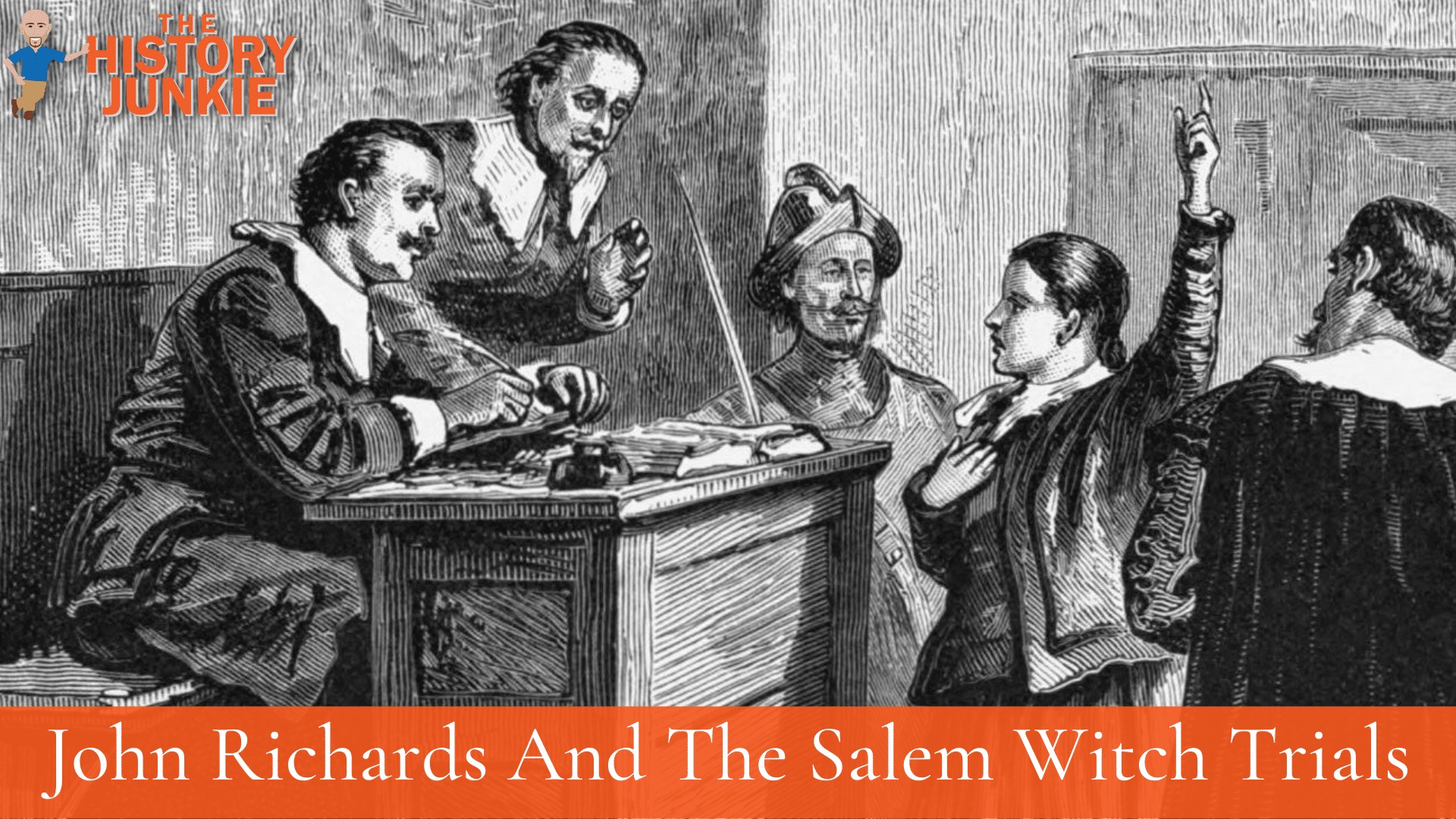John Richards will forever be known for his involvement in the Salem Witch Trials in 1692. He wore many hats during his life, which included a military officer, businessman, politician, and magistrate. It would be his service as a magistrate that would place his name in American History forever.

Biography
John Richards was born in England and traveled with his parents in 1630 to North America as part of the first major wave of migration to the Massachusetts Bay Colony.
In 1644, Richards was enrolled in the Ancient and Honorable Artillery Company, which he would remain involved with for the rest of his life.
A resident of Dorchester for most of his life, he operated a mill and frequently served on the colony's general court.
The colony did not have a residency requirement, and he usually represented communities (such as Hadley that were distant from Boston, where the assembly met.
In 1679 and 1680, however, he was chosen to represent Boston and was elected speaker in 1680. From 1680 to 84, he served as one of the colony's assistants, whose council served as the upper body of the assembly and as the colony's highest court.
In 1681, Richards was appointed along with Joseph Dudley to represent the colony in London in an attempt to address royal concerns over the colony's administration.
King Charles II had, upon his restoration, insisted that the colony exhibit more religious tolerance and adhere more closely to the Navigation Acts, both of which the colony's hard-line administration had resisted doing.
Richards and Dudley were unsuccessful in their negotiations with the Lords of Trade because the colonial government had specifically denied them the authority to agree to changes in the colonial charter.
Richards was of the opinion that the colonial government should acquiesce to the crown's demands and was consequently voted from office in 1684. That year, the colonial charter was revoked.
In 1686, the Dominion of New England was established, with Joseph Dudley as its first governor and Sir Edmund Andros as its second.
He served as a judge under Dudley's brief administration but was apparently opposed to Andros' unpopular rule, in which he played no part.
The dominion was overturned in 1689 when Andros and Dudley were arrested in the wake of the Glorious Revolution. The old colonial administration was restored, and Richards was once again made an assistant.
He married Ann Winthrop, who was the widowed daughter-in-law of John Winthrop, who was one of the founders of the colony. His sermon, A Model of Christian Charity, is remembered for its influence on the colony.
Salem Witch Trials
Governor William Phips arrived in Massachusetts Bay in 1692 as the Salem Witch Trials were at their climax. Phips was a military man and did not look at the trials favorably but seemed to be reluctant at the beginning to intervene.
He created the Special Court of Oyer and Terminer and appointed various judges; one of these judges was John Richards.
This court would go on to oversee the conviction and execution of nineteen citizens of Massachusetts Bay Colony, which would be the darkest time in the colony's history.
When the Superior Court of Judicature was formed as the province's high court, Richards was also appointed to it.
This court disposed of a great many more witchcraft cases, acquitting many; its witchcraft-related convictions in 1693 were vacated by Governor Phips.
John Richards, although not as well-known as William Stoughton, played a role in the death of the accused.
Conclusion
John Richards seemed to be a pious and good man for the community throughout his life. However, his involvement in the Salem Witch Trials will forever tarnish his legacy.
His allowance of spectral evidence in the courtroom and the conviction of his neighbors because of that evidence was one of the greatest tragedies in early America.
Innocent and many religious citizens were put to death because of the immoral motives of Thomas Putnam and Samuel Parris, who had much influence on the accusers.
Richards would be one of the magistrates who concurred with the others who put them to death.
He died two years after the trials from a stroke.
<- Return to List of People Involve in the Salem Witch Trials
